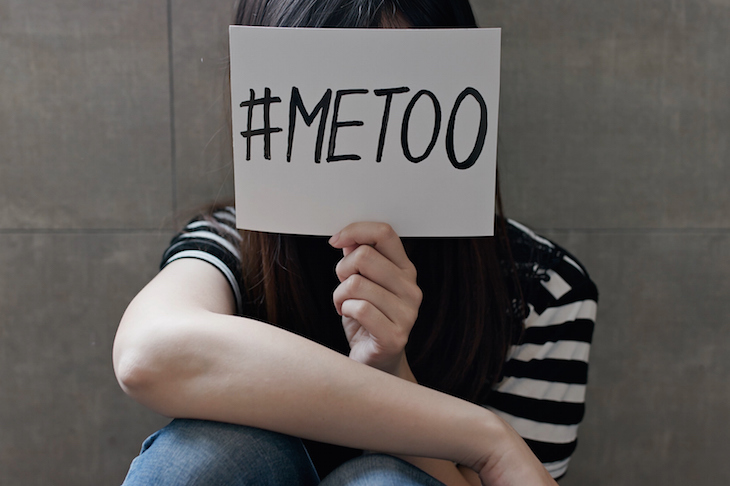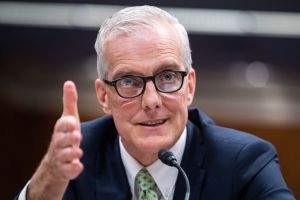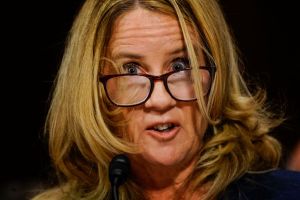On 11 October 2017 an anonymous Google spreadsheet began doing the rounds of American newspapers and magazines — a document that would have far-reaching consequences for Stephen Elliott, a Los Angeles-based writer and editor. Called ‘Shitty Media Men’, the spreadsheet had been created by Moira Donegan, a former assistant editor at the New Republic, and named various men rumoured to be guilty of sexual misconduct. Donegan closed it down a few days later, but by that time it had been widely circulated and many names had been added, alongside a summary of their alleged crimes. The entry for Elliott read: ‘Rape accusations, sexual harassment, coercion, unsolicited invitations to his apartment, a dude who snuck into Binders???’ (Binders is a Facebook group for women writers.)
The spreadsheet contained a disclaimer: ‘This document is only a collection of allegations and rumours. Take everything with a grain of salt.’ Needless to say, that was largely ignored. Numerous articles appeared celebrating the list as a much–needed ‘reckoning’, with not many people pausing to consider whether the men on the list were guilty. Elliott had a collection of essays to promote, but interviews were pulled, readings cancelled and his book tour fizzled out. His television agent stopped returning his calls and some friends began to distance themselves. He found himself at the centre of a Kafka-esque nightmare.
Initially, Elliott decided it was pointless to fight back. For one thing, he’s a lifelong liberal and is generally sympathetic to the #MeToo movement — or he was at the time. If he spoke out and said he’d been falsely accused it might cast doubt on all the other #MeToo allegations, including those against Harvey Weinstein. In addition, he hoped that if he didn’t respond it would soon be forgotten — ‘least said, soonest mended’. Then, when it became clear that his career had been seriously damaged, he became depressed and started abusing various substances. His thoughts turned to suicide, which is a common reaction to a public shaming. Last year the Hollywood producer Jill Messick committed suicide after she was accused of being one of Weinstein’s ‘enablers’ — an allegation she denied.
But after a few months Elliott got sober and decided he could no longer ignore the rape charge. If he didn’t confront it, it would dog him for the rest of his life — and, according to him, he’s innocent. He wrote an essay for New York magazine, setting out the case for his defence, but after initially being accepted it was rejected. He passed it on to the Guardian and it was the same story: an enthusiastic reception followed by a change of heart. Eventually, a version of that essay found a home in Quillette, an Australian online magazine where I’m an associate editor. After it was published, two women came forward to accuse Elliott of having behaved badly towards them, but the charges didn’t amount to anything more serious than ‘unsolicited invitations to his apartment’ and, as he pointed out in his essay, it isn’t a rule that you have to wait for a woman to ‘solicit’ an invitation before you can ask her back to your apartment. No one has ever made an attempt to substantiate the rape allegation.
Last week the story exploded when Elliott filed a $1.5 million law suit in New York against Moira Donegan and some of the other women who contributed to the ‘Shitty Media Men’ list. The reaction was predictable, particularly as the news followed on the heels of Brett Kavanaugh’s confirmation as a Supreme Court Justice. One of Elliott’s former colleagues described the suit as ‘an outrageous act of violence against Moira first and foremost, as well as everyone who contributed to the list or found any measure of solidarity or hope or comfort or usefulness in it’.
It’s hard not to sympathise with Elliott if you give him the benefit of the doubt. When a woman accuses a man of rape, the default position should not be to believe her, particularly if there’s no corroborating evidence. That’s tantamount to a presumption of guilt, a fundamentally illiberal principle. In this case, we don’t know if the accuser is a woman and you would hope even #MeToo activists would stop short of insisting we should believe anonymous allegations. Above all, no one accused of a serious crime who protests their innocence should lose their livelihoods without due process being followed. I’m glad Elliott will have his day in court.
This article was originally published in The Spectator magazine.


















